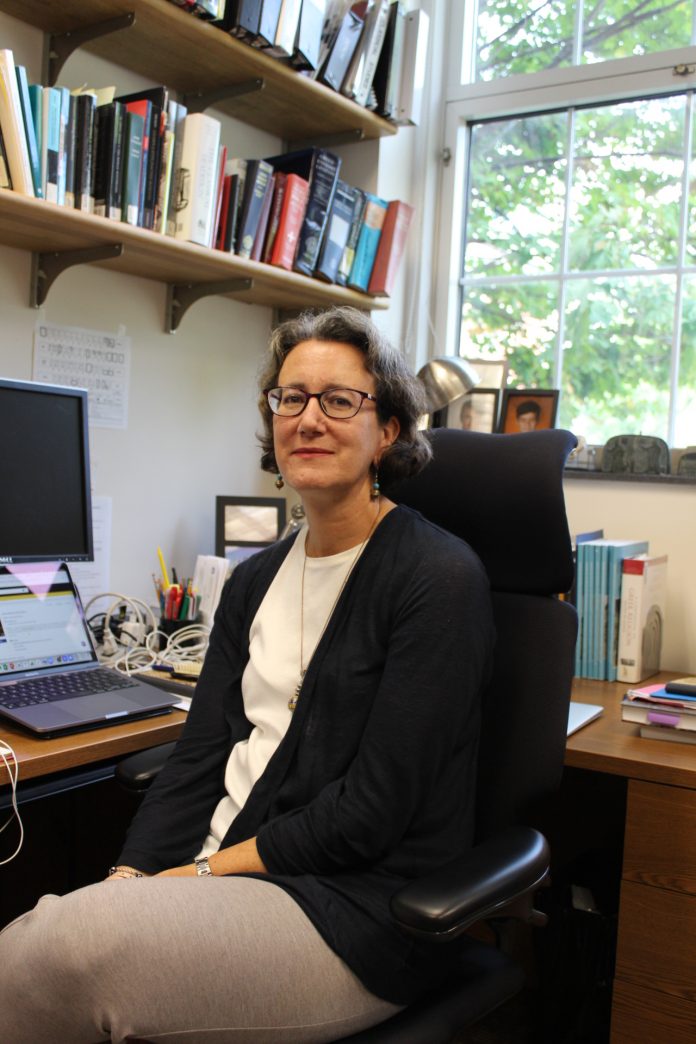
DePauw’s Honor Scholar program is turning over a new leaf with the introduction of its new director, Rebecca Schindler. With a background in archaeology, Schindler is familiar with the interdisciplinary focus emphasized in the Honor Scholar program and looks forward to helping “curious students pursue their passions, wherever they may lead.”
The program’s former director, professor Kevin Moore, left the Honor Scholar program on “solid ground,” according to Schindler; however, she looks forward to continuing the growth of the program. As the semester progresses, Schindler plans to continue to introduce new events for Honor Scholar students, such as bi-weekly support groups, tea & cookies meetings, and a recreation of the program’s Instagram page. Long term plans include creating a designated space for Honor Scholar students, rethinking the senior thesis process, and bringing more international and under-represented students into the program. Schindler also plans to reconnect with Honor Scholar alumni.
Although the program is growing, with an increase of about 88%, according to Amy Welch, there are still some new challenges facing students and faculty. All Honor Scholar students are required to complete a thesis their senior year, with at least two faculty members on their committee, according to DePauw's website. However, seniors are struggling to find faculty members willing to join their thesis committees. Brenna Milligan, a senior Honor Scholar, is currently struggling with this issue. “I struggled to find professors to be on my committee, as I found that many already had multiple students they were helping or did not have much experience with the Honor Scholar program.”
This challenge is making it difficult for students to complete the requirements for their thesis. When asked about the program’s plans to help these students, Schindler said, “We are well-aware that when faculty serve on Honor Scholar thesis committees, it is in addition to their regular teaching and advising loads… Faculty should not only be acknowledged for their time and efforts, but also compensated for the work they do.”
Milligan agreed and said, “I believe the HoSco program needs more support from DePauw. Considering how many students are involved with the program and the substantial time and effort many professors and staff put into the program, compensation for their help––namely sponsors or readers––may help.”


